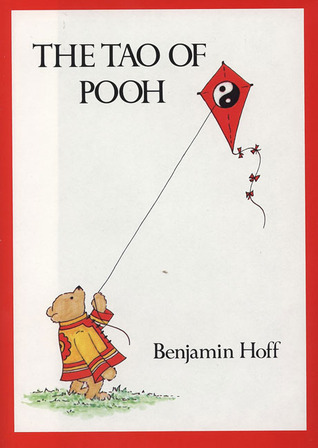Chapter 7: Bisy Backson
byIn this chapter Bisy Backson portrays a character who is overwhelmed by the need to stay busy, yet his frantic efforts lead him nowhere. The story begins with Rabbit, who starts his day feeling important, but quickly becomes puzzled when he finds Christopher Robin’s house empty, except for a mysterious note saying “GON OUT BACKSON BISY BACKSON.” This cryptic message piques Rabbit’s curiosity about who or what the Backson might be. Determined to find answers, Rabbit consults Owl, but discovers that Owl, too, is completely unaware of the Backson’s identity. Through this mystery, the story sheds light on the Backson’s nature, depicting him as someone constantly engaged in activity, whether it’s skydiving, tennis, or jogging, yet all of this is a form of distraction rather than true productivity. This reflects a broader societal issue where being constantly busy is mistakenly equated with being productive, and the narrative invites readers to challenge this misconception.
The chapter contrasts the Backson’s relentless activity with the simpler, more mindful lives of characters like Pooh. While the Backson is obsessed with constantly doing, Pooh’s approach is about enjoying the present moment without feeling pressured to achieve anything. This difference in mindset serves as a critique of modern society, where individuals often prioritize being busy over enjoying the small, simple moments that bring true happiness. The narrative encourages readers to reconsider the meaning of productivity, suggesting that real fulfillment comes not from endless work or external achievements but from taking the time to enjoy life as it is. Pooh’s calm demeanor highlights the value of slowing down, reminding us that true contentment is found in the process of living, not in rushing toward an end goal.
As the story continues, the absurdity of the Backson’s existence becomes clear. His endless search for a “Great Reward” keeps him in motion, yet he is never satisfied, highlighting the futility of chasing after something that can never be attained. This mirrors the modern tendency to constantly seek more—whether more possessions, achievements, or success—only to realize that these pursuits never bring lasting satisfaction. The chapter humorously critiques how modern life often distracts people from the things that truly matter, such as the simple joys of living in the moment. The Backson symbolizes the modern individual who is caught in the trap of perpetual striving, never stopping to enjoy the present or appreciate what they have. The lesson here is clear: happiness doesn’t lie in constant activity or external rewards, but in embracing the present moment.
Pooh’s philosophy serves as a perfect contrast to the Backson’s frantic search. While the Backson is obsessed with achievement, Pooh finds contentment in the simplicity of life. He encourages others to slow down, be present, and savor the quiet moments that life offers. This approach contrasts sharply with the modern obsession with doing more and achieving more, which often leads to burnout and dissatisfaction. Pooh’s wisdom suggests that fulfillment comes not from constantly striving for bigger goals, but from appreciating the little things in life. In this sense, Pooh embodies a way of living that is more aligned with true well-being, showing that balance and simplicity can bring about a deeper sense of happiness than the ceaseless pursuit of success.
The chapter concludes with a reminder of the dangers of overwork and the importance of embracing simplicity. The Backson, in his tireless pursuit of something he can never reach, serves as a metaphor for the modern world’s obsession with busyness. People often become so caught up in their goals and responsibilities that they forget to take the time to enjoy life as it is. Pooh’s more relaxed approach reminds readers that happiness comes from being present in the moment, not from the endless pursuit of achievements. The story encourages reflection on our own lives, urging us to slow down and appreciate what we have rather than constantly chasing after the next big thing. Through Pooh’s example, readers are reminded that contentment and joy are found in simplicity, mindfulness, and the ability to appreciate life’s everyday moments.

